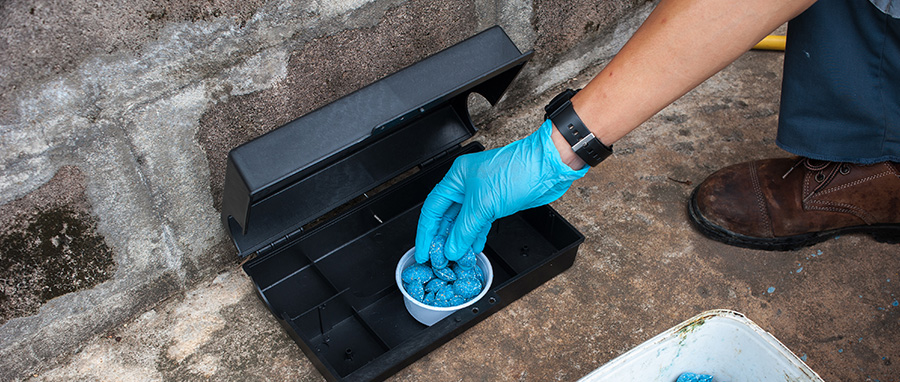Traps can be effective against rats and mice short-term, but the best way to get rid of them is with professional intervention.
Rats and mice are one of the most common household pests in Spokane and throughout Washington. Whether you’re battling mice in the kitchen or rats in the attic, traps are often the first solution homeowners reach for.
So what’s the difference between mouse traps, rat traps, and other rodent traps? Eden Advanced Pest Technologies is here for you, to explain how effective traps can be, when they work best, and when it’s time to call a professional rodent exterminator.
Differences Between Mouse Traps and Rat Traps
Many people use the term “rodent traps” to cover everything from small mouse traps to heavy-duty rat traps. But not all traps are created equal.
- Mouse traps are designed for smaller rodents. They’re typically more sensitive and effective for the quick, light movements of mice.
- Rat traps are larger, stronger, and built to handle the size and power of rats.
- Rodent traps is a broad term, but the trap’s size and style should match the species you’re trying to catch for the best results.
How Helpful Are Mouse and Rat Traps?
When set and placed correctly, rodent traps can be highly effective for small, localized infestations. Traps offer several benefits:
- Immediate results by removing rodents one at a time.
- No widespread chemical use inside your home.
- Ability to monitor rodent activity.
However, traps have limitations. They only catch the rodents that find them and don’t address the full colony or the entry points that allowed them inside. Because of these setbacks, ongoing infestations or larger populations often require professional rodent control.
Types of Traps
While some of these traps are available in stores, it’s best for a professional to choose and place them around your property:
- Snap Traps: Snap traps are one of the most traditional and widely recognized types of rodent traps. These devices consist of a spring-loaded mechanism designed to snap shut when triggered by a rodent. While snap traps can be effective at catching individual rodents, they require careful placement and monitoring to ensure success.
- Glue Traps: Glue traps (also known as adhesive traps), rely on a sticky adhesive surface to capture rodents as they attempt to cross the trap. However, larger rodents may escape from glue traps by tearing themselves free, rendering the trap ineffective.
- Live Traps: Live traps offer a more humane approach to rodent control by capturing rodents alive for later release. These traps typically consist of a cage or box with a trigger mechanism that closes the door once activated by the rodent.
- Electronic Traps: Electronic traps utilize technology to deliver a lethal shock to rodents upon entry. These traps are designed to be quick and efficient, often delivering a high-voltage shock that kills rodents instantly.
Whether it’s a snap, glue, or live trap, you’ll still end up having to monitor and handle each individual trap. Professionally placed bait stations, on the other hand, can take the stress out of rodent control.
The Difference Between Rodent Traps and Bait Stations
Traditional traps are designed to catch one rodent at a time, but bait stations take a broader, more preventative approach. These enclosed units contain rodenticide bait that lures rodents inside, where they consume the poison.
Instead of relying on a snap or trigger to work, bait stations use food appeal to draw rodents in and deliver a lethal dose. This method can handle multiple pests at once and is especially useful for tackling hidden nests or larger, widespread infestations where traps alone may fall short. Bait stations are an excellent way to protect your home, especially when monitored by a professional rodent exterminator.
4 Tips for Getting the Best Results With Mouse and Rat Traps
- Place traps where you see droppings, gnaw marks, or rodent runways (such as along walls, behind appliances, or near food storage areas). Effectiveness depends on correct placement and baiting.
- Instead of cheese, attach peanut butter, nuts, or dried fruit to the trap.
- For rats, place larger traps with heavier bait to attract their attention.
- Check the traps frequently and dispose of captured rodents promptly and safely, or by calling a professional removal service.
Is DIY Rodent Trapping Good Enough?
You might think mice are small and harmless, but they pose serious risks by spreading illnesses such as Salmonella and Hantavirus. Left unchecked, their rapid breeding can turn a minor issue into a costly, stressful infestation. Addressing the problem early is the best defense, and traps alone are likely not enough if you’re seeing:
- Multiple rodents caught daily.
- Rodent damage in multiple areas of your home.
- Signs of nests, droppings, or scratching that persist after trapping efforts.
In these cases, professional rodent exterminators can combine trapping with exclusion and sanitation to eliminate the infestation and prevent future problems.
Reliable Rodent Control in Spokane WA & Coeur d’Alene ID
At Eden Advanced Pest Technologies, our licensed rodent exterminators understand the behavior of mice and rats and use targeted strategies to eliminate them quickly and safely. We can identify the right trap type, remove active infestations, and rodent-proof your home for long-term protection.
Contact Eden Advanced Pest Technologies today for a free estimate or to schedule a rodent control service in Spokane, WA and Coeur d'Alene, ID.
Back to Rat & Mice Exterminators, Control & Removal

